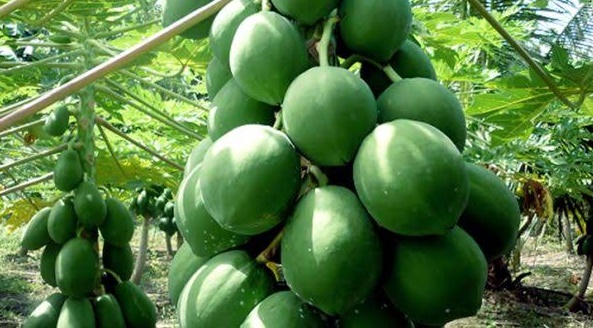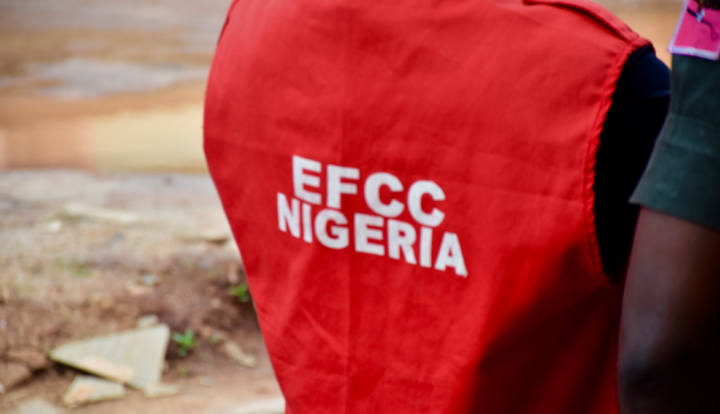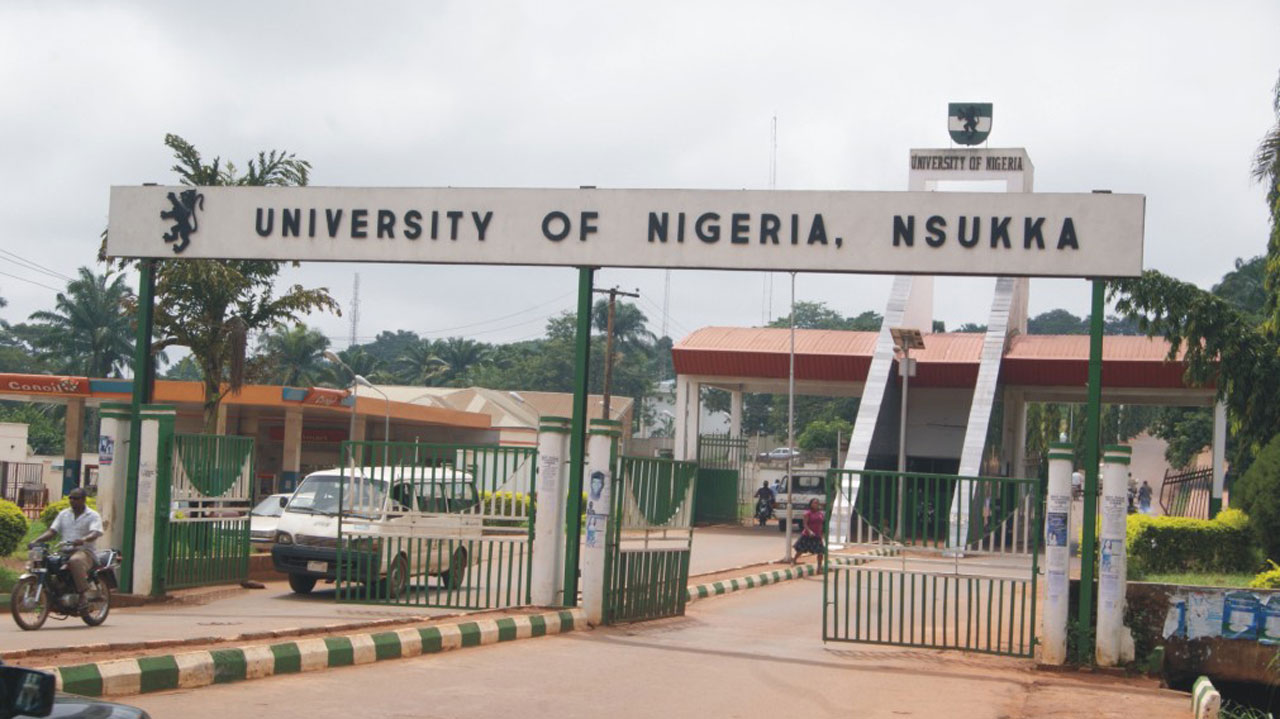Nigeria's quest for pawpaw zenith and Agro Empire interventions
According to statistics, Nigeria is the 4th largest producer of dwarf pawpaw fruit in the world with well over 800,000 metric tons per annum, trailing only India with 5.5 million metric tons, as well as the duo of Brazil and Indonesia with 1.5 metric tons each.
It is also without doubt that Nigeria has the capacity to expand its pawpaw fruit production to rival the world leaders at the moment. It is for this reason that the Ijale-Orile, Alamala, Abeokuta North Local Government Ogun state-based Agro Empire Estate has taken up the challenge of increasing and improving on the pawpaw cultivation in Nigeria, especially through research efforts that reveal the economic advantage of the produce in the country.
Adedapo Moshood, CEO/Managing Director of Agro Empire Estate, says by-products of pawpaw like chips and flour serve as means of long-term preservation for the produce.
The investment portfolio is also created for individuals and corporate organisations with huge benefits from activities around the pawpaw production which enable ownership of pawpaw farms to be managed first by the Agro Estate for five years before being handed over to the owners after the estate’s experts have provided periodic information on the farm activity in videos, pictures and written form that would, in turn, be forwarded the investor’s dashboard on the estate’s website.
Advertisement
The farm would cost a total of N300,000, representing N80,000 for ownership; N40,000 for land bulldozing; N80,000 for seedlings; N10,000 for manure; N10,000 for fertiliser; N3,000 for insecticides/pesticides; N3,000 for herbicides; N5,000 for first weeding; N5,000 for second weeding; N6,000 for planting; N4,000 for application of herbicides; N4,000 for application of pesticides; N4,000 for application of fertiliser/manure; N40,000 for farm management/logistics; and N6,000 for insurance.
The idea, according to Moshood, is targeted at renewing the Agro industry in Nigeria with a view to creating investment portfolios in different areas of agriculture, which include crop production, livestock, Agro- processing, mechanisation, logistics, storage, and warehousing, as well as to assist in solving market problems through take-off schemes for individuals, corporate organisations, Nigeria-based and diaspora-based business owners and the working class with busy schedules but who have interest in agriculture. It also aims to position agriculture as a catalyst for global economic growth and wealth creation in a safer environment and ultimately to be actively engaged in world food security and industrial drive for the economic well-being of Nigeria in particular and the world in general.
It is pertinent to state that agriculture in Nigeria has yet to attract prospective economic agents due to a myriad of challenges that include the shortage of good agronomy practice, limited access to machineries and equipment, inadequate human resources, high cost of irrigation, and absence of a good market structure. All these combine to make players in the agriculture sector unable to harp on the untapped wealth that the sector posesses, especially as the process requires strict adherence to patience and commitment with a view to ensuring maximum productivity which would, in turn, lead to high revenue.
Advertisement
Sequel to the foregoing, the Agro estate has designed a structure to provide increased value chains through innovation, improve access mechanisation for economic agents, make irrigation more accessible, improve on farm management systems, create effective storage and warehousing, provide agro-homes for residential purpose, and good marketing structure.
Location of the farm, which serves a commercial purpose as a meeting point between Nigeria as Benin Republic, and the loamy texture of the soil which retains water for a long period would also offer investors prospects for profit.
The company would be liable to acknowledging the investor’s payment for the land and pawpaw planting. This is after Memorandum of Agreement has been duly signed by the company and investor, at which a legally-binding
An Investment Certificate would be issued within three days.
Advertisement
The hybrid dwarf pawpaw has since taken over the conventional pawpaw trees and has become commercially viable for farmers over time. The hybrid dwarf pawpaw, a long oval-shaped and red fruit type with higher sweetener consist of male/female seed with 90 percent chances of germination. A seed produces about 70 fruits per harvest with a maturity period of nine months and lasts for five years as a tree, unlike the majority of pawpaw that lasts for only one year.
Proper land preparation is essential to the viability of the pawpaw plant, the first step to making the commercial pawpaw business profitable. Bulldozing is required in the case of virgin land in order to plough and harrow to loosen the soil.
Pawpaw trees are very vulnerable to transplantation shock if not transplanted in the appropriate way. Seedlings tend to recover slowly and poorly after replanting in a new location under a sunny sky. As a result, it is advisable that pawpaw seedlings be transplanted without injury to their root systems. Keeping the root systems intact is however next to impossible if the pawpaw seedlings are too close to each other. Sometimes, however, a pawpaw seedling with severely broken root systems can still survive transplantation nicely. Pawpaw seedlings are usually transplanted after eight weeks and the planting material (nylon) is gently removed before putting it in the ground. The ground should be within 15m and 20m deep and when planted it should be covered lightly with compost. Planting spacing could be 1.5m x 1.5m, 1.8m x 1.8m, 2m or 2m or 3m x 3m.
It is advantageous if the soil is weed-free as this reduces competition of nutrient between the pawpaw plant and unwanted plants. If weeding is not done in time the weeds will serve as alternate hosts to plant disease, thereby affecting yields.
Advertisement
Fungi, pests, and diseases can cause devastating effect on the growth and productivity of pawpaw. Some of the diseases are anthracnose, charcoal spot, black sunken, black spot, and circular water-soaked or brown lesions, etc. It is important fungicides and pesticides are sprayed periodically to prevent the occurrence of diseases.
A pawpaw tree produces between 80 and 100 fruits per season and could be more, depending on the soil nutrient.
Advertisement
The bulldozing cost is reduced because it will be done in group (100 plots at once). Over 120 treated dwarf pawpaw seedlings will be purchased and transported to the farm, although a plot will take about 100 seedlings. But is assumed that less than 10 percent might not grow well, while the remaining 100 will be used for resupplying the farm to maximize the land. Frequent application of manure, weeding, herbicides and nematicides are farm management practices that will be carried out frequently on the farm to ensure the farm is in a good state.
Return on investment can be as high as 300 per cent, less the cost of production, and cannot be less than 40 per cent at any give time.
Advertisement
Provision is also made for farm owners to visit their farms frequently to see first-hand the development of their farms as well as how their financial commitment is being utilised.
Nigeria is well positioned to rival world’s top pawpaw producers India, Brazil and Indonesia, as long as government can provide enabling environment for investors in the agro business. It is in the light of this that Agro Empire Estate is well positioned to help Nigeria’s effort to attain global reckoning in pawpaw production.
Advertisement
Afolabi Gambari contributes this piece from Lagos
Views expressed by contributors are strictly personal and not of TheCable.
Add a comment







